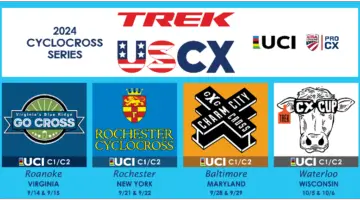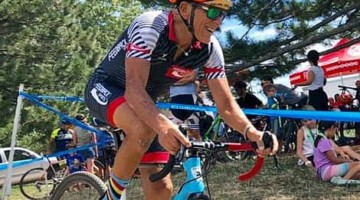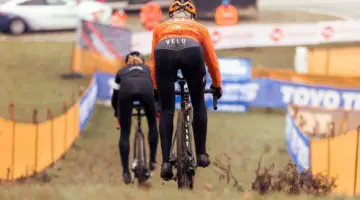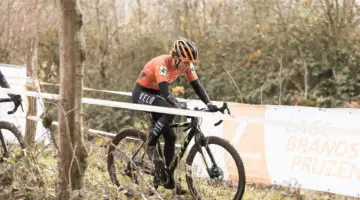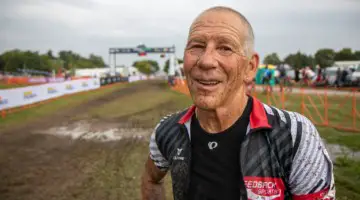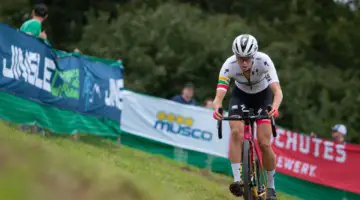Cyclocross season is upon us. I don’t know the right hashtag for this time of year. #crossiscame? [Ed. Note: #crossishere?]
It’s a great time of year, especially as a coach. Most of the year I spend my time with athletes focused on programming. That means writing schedules, assigning workouts and monitoring training load. That’s what most people seem to think of when they think of a coach. Honestly, it’s probably the easiest part of my job.
By the time ’cross season rolls around you’ve done all the hard work to prepare for the season. My role then transitions from “assigner of workouts” to two other roles that are always challenging but very rewarding.
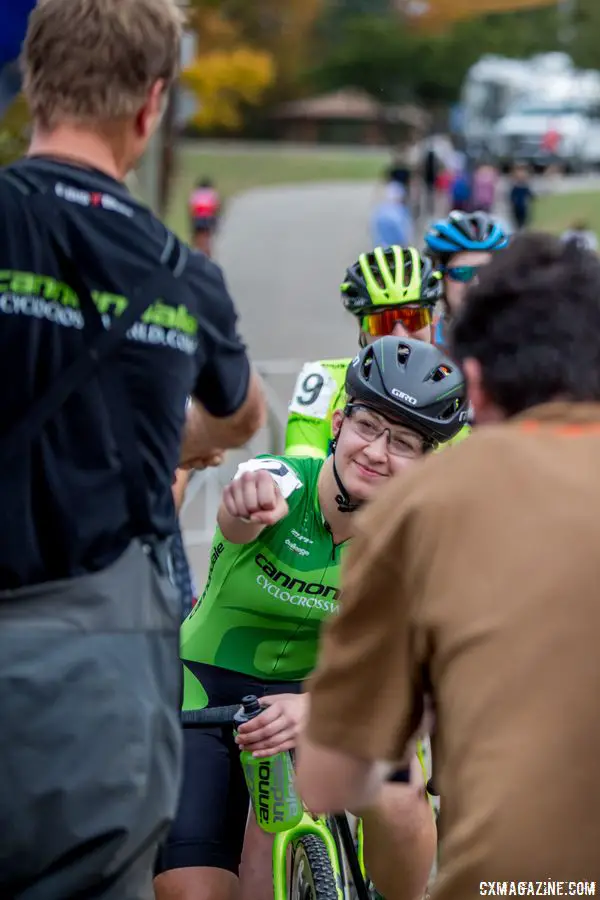
The role of coach changes during the cyclocross season. 2017 Pan-American Championships. © D. Perker / Cyclocross Magazine
Do Less to Get More
Role one is getting people to do less work, not more. “There’s a certain reassurance in being tired,” as Mike Creed puts it.
Most athletes thing they’re doing the right thing if they are always tired and sore. And in July you might be right. But ’cross requires a lot of high-end, short, bursty power and to generate that power you have to be fresh and motivated. That means not doing a lot of training during the week.
It’s very tempting to want to sneak in one extra workout, just to be sure you’re fit. I may have done some dead lifts last week on a recovery day. That did not go well, long term. In the moment it felt right to blow off some steam—and if you’re self-medicating ADHD, depression or anxiety like a lot of us are, you have all my sympathy—but for long-term performance, a true rest day would have been the right move.
My job in role one is to help athletes understand why I don’t have them riding a lot during the week when they are racing heavily. They want and need to have the confidence that they are doing the right thing by not riding a lot and that feeling fresh and rested right now is a good thing.
It’s always a fun talk to say “Yes, you should be chilling on the couch,” or “Good move not riding today, I’m proud of you for making that call.” More riding right now is not the answer, but it takes a lot of confidence in yourself and your training to be able to not work as hard as your instincts might drive you to do.
Do Less in a Different Way
Role two also involves getting people to do less, in a different way. At some point the stress and pressure of competition can become too much. It’s at this point that I field phone calls from clients who don’t want to race on a given weekend but feel like they “should.”
This is where I get to play (extremely) amateur psychologist. First and foremost, at the amateur level, there ought not to be “shoulds” in regards to racing. There are shoulds regarding your loved ones and maybe your yard, depending on your HOA.
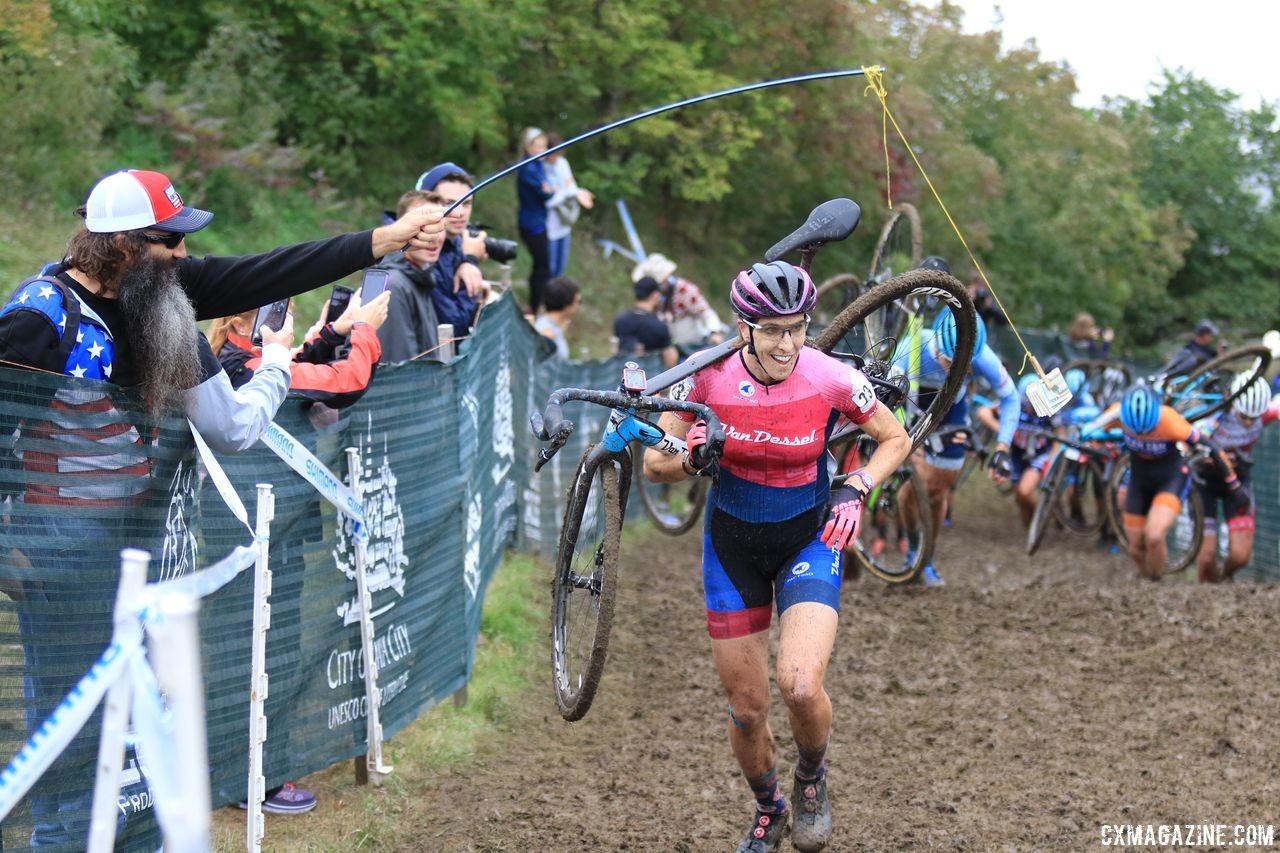
Cyclocross should be fun, especially for amateur athletes. 2018 Jingle Cross Day 3, Sunday. © D. Mable / Cyclocross Magazine
The only should regarding racing is that it be fun. When it stops being fun and becomes an obligation, it’s time to reevaluate. What I love most about these talks is that people already have the answer for themselves and know what they need to do. Almost always better than I do. My job is to listen to them, be supportive and maybe ask one or two questions.
Most people know at some level what’s best for them but they often have a hard time giving themselves permission to do it. Have some faith in your judgment and self-knowledge and allow yourself to do what you think is best for yourself.
You’ve done the hard work you needed to do. Baked your cake, put hay in the barn, whatever metaphor works for you. (I notice they are both food metaphors, which tells you I’m an endurance athlete).
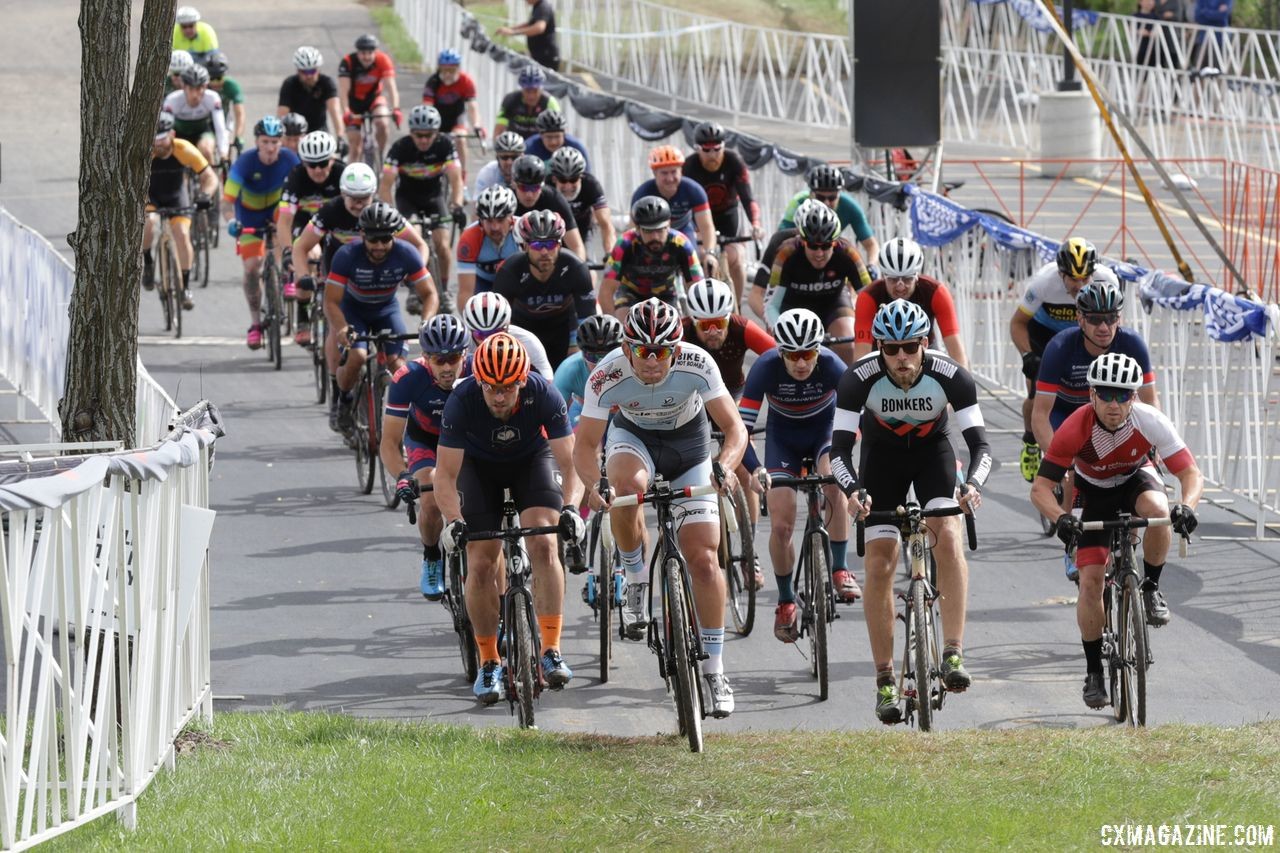
Take your fitness and put it to good use. 2018 Trek CX Cup, Waterloo © Cyclocross Magazine / R. Clark
In any case, it’s time to take that fitness and put it to use. The best way to do that is by focusing on the things that maximize freshness and minimize stress. As an athlete, it’s very hard to give yourself permission to do that. The keys are to understand why you’re taking it easy and to have confidence that it’s the right path for you to achieve the goals you’ve set for yourself on the weekend.
And if you’re struggling with those things, talk to someone. It’s easier to give advice on an issue when you have some distance from it. But I think you’ll often find that you already know what the right choices are you just need to give yourself permission to do those things.
For more training advice, see our Training Tuesday archives.










